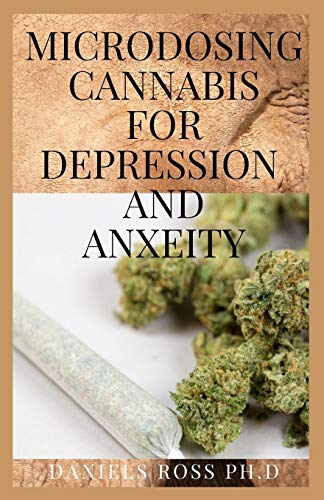Microdosing cannabis has become a popular method for treating depression and anxiety. In this comprehensive guide, we will delve deep into the world of microdosing with cannabis and explore how it can be an effective tool in managing these mental health conditions.
Living with depression and anxiety can be incredibly challenging. Traditional treatments such as therapy and medication may not always provide the relief we need. This is where microdosing with cannabis comes in. By taking small doses of cannabis, individuals can experience the therapeutic benefits without the psychoactive effects.
Microdosing involves consuming very low doses of cannabis, typically around 2.5 to 5 milligrams of THC (tetrahydrocannabinol), the main psychoactive component of cannabis. This amount is significantly lower than what is typically found in a recreational or medicinal dose.
The goal of microdosing is to harness the therapeutic properties of cannabis while minimizing any unwanted side effects. By taking small, controlled doses, individuals can experience the potential mood-enhancing and calming effects of cannabis without feeling intoxicated or impaired.
One of the key benefits of microdosing cannabis for depression and anxiety is its potential to alleviate symptoms and improve overall mental well-being. Cannabis contains compounds called cannabinoids, which interact with our body’s endocannabinoid system. This system plays a crucial role in regulating mood, stress, and anxiety levels.
Research has shown that cannabinoids, such as THC and CBD (cannabidiol), can have an impact on our brain’s neurotransmitters and receptors, potentially providing relief from symptoms of depression and anxiety. Microdosing allows individuals to tap into these therapeutic effects without the risk of experiencing overwhelming psychoactive effects.
When starting with microdosing, it’s important to find the right dosage that works for you. Every individual is different, and what works for one person may not work for another. It’s recommended to start with the lowest possible dose and gradually increase until you find the desired effects.
It’s also crucial to use high-quality cannabis products and to consult with a healthcare professional before starting any new treatment regimen. They can provide guidance and monitor your progress to ensure it is safe and effective for your specific needs.
In conclusion, microdosing cannabis can be a valuable tool for individuals seeking relief from depression and anxiety. By taking controlled and minimal doses, individuals can tap into the potential therapeutic benefits of cannabis while minimizing any unwanted side effects or intoxication. It’s essential to approach microdosing with caution, starting with low doses and consulting with a healthcare professional. With a comprehensive understanding of the topic and proper guidance, microdosing with cannabis can offer a new avenue for managing these mental health conditions.
